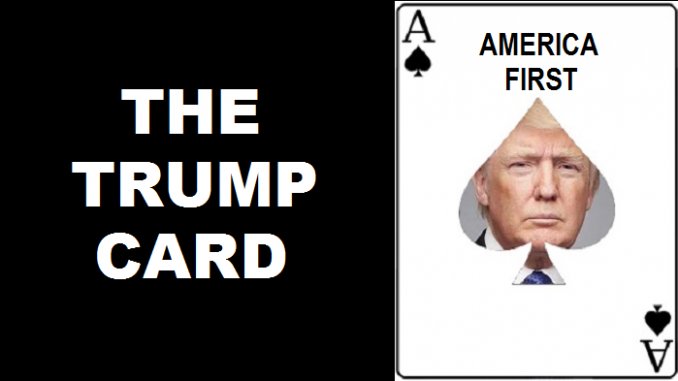Maximum pressure, transactional thinking and an emphasis on spheres of influence all define Donald Trump’s approach to diplomacy and give concrete form to his “America first” ideology. In a world undergoing turbulent change, the impact and destructive effect of this approach demand vigilance.

Since being elected U.S. president a second time, Donald Trump has made a series of highly disruptive foreign policy moves. The emergence of a revised Monroe Doctrine, forged in his own image, has attracted widespread attention from the international community.
The Monroe Doctrine, which originated in the early 19th century, served for a long time as the theoretical basis for the hegemonic policies of the United States in the Americas. The new version expands both its scope and implementation methods and has become an important tool for shaping the regional and even global order. Through his policy actions in implementing the revised doctrine, Trump has given tangible expression to his vision and goals. A series of shifts in the U.S. political landscape and in the international environment have provided fertile ground for the rise of a new approach, one that might aptly be called the Trump Doctrine.
Domestically, Donald Trump caters to populist sentiments and adheres to a notion known as “America first,” under which he prioritizes the primacy of American interests and exhibits strong unilateralism and protectionism in foreign policy. Internationally, the rise of emerging nations has challenged America's global dominance, particularly in Latin America, where closer cooperation between non-regional nations and regional countries has raised concerns in Washington.
In Trump’s view, the war in Ukraine is nothing but a drain on resources, while China is seizing the opportunity to expand its influence in Latin America and globally. This means that bolstering the waning hegemonic resources of the United States in the Western Hemisphere is the inevitable policy choice.
Washington has adopted a series of policies and actions reflecting this new Trump Doctrine. Economically, the U.S. administration frequently wields the tariff stick — for example, by imposing 50 percent tariffs on major U.S. trading partners, such as Brazil — in an attempt to compel compliance and maintain U.S. influence in the region through economic pressure.
On immigration, Trump takes a hard-line approach. He has established multiple military zones along the U.S.-Mexico border and, in a departure from tradition, has deployed troops on the front lines to combat illegal immigration, including carrying out arrests and detentions.
Militarily, the U.S. has strengthened the mission and capabilities of its Southern Command, significantly increasing military intervention in Latin America. Since August, Washington has deployed military force in waters near Venezuela on the pretext of combating drug trafficking. It has attacked vessels alleged to be smuggling drugs on multiple occasions. Trump also unilaterally announced the renaming of the Gulf of Mexico as the Gulf of America, disregarding history and international conventions and highlighting his hegemonic mindset.
The Trump Doctrine serves as a key instrument the U.S. president can use to consolidate hegemony in Latin America and achieve absolute control over the surrounding geopolitical environment. This reflects Trump’s concept of a sphere of influence. Reports indicate that the Trump administration is about to release its National Defense Strategy, which prioritizes homeland security and the security of the Western Hemisphere above great-power competition — a major strategic shift from his emphasis on great-power competition during his first term.
From the 19th-century annexation of half of Mexico’s territory to current coercive actions against Latin American countries, Trump’s enduring commitment to the notion of “America for Americans” reflects his zero-sum mentality, which aims to build hegemony and the exclusive power to shape the regional order in Washington’s way. Trump’s repeated references to controlling Greenland, Canada and the Panama Canal further illustrate his attempt to defend American hegemonic interests. On the broader implications of the new Trump Doctrine, David Rubin, a researcher at Chatham House in the UK, believes that Trump is seeking an international order structured around spheres of influence.
Trump’s implementation of the new doctrine through various means highlights the immense risks posed by his attempts to shape international relations. While the traditional Monroe Doctrine primarily relied on political and economic means to protect U.S. interests in Latin America, Trump places greater emphasis on the direct use of military force and rapid-response tactics, frequently employing military coercion — as against Venezuela, for example. The Caribbean region has effectively become the epicenter of a new round of low-intensity wars waged by the United States.
Trump also increasingly employs other coercive tools, such as economic sanctions, to punish noncompliant Latin American countries, and at times even places high-value bounties on foreign heads of state. This approach marks a significant departure from the traditional Monroe Doctrine, which sought to influence the region mainly through economic aid and investment. In particular, in his first month in office, Trump issued an executive order allowing the U.S. to designate foreign drug cartels as “terrorist organizations” to provide legal justification for subsequent military strikes and covert intelligence operations across Latin America. Some domestic media outlets have equated Trump’s “war on drugs” with the “war on terror,” coining the notion of “drug terrorism” to legitimize intervention.
By leveraging domestic legal frameworks and rhetorical justification to dramatically expand U.S. jurisdiction, Trump’s approach effectively makes any country a potential target for intervention. These actions underscore the inherent dangers of his attempts to reshape the international order and its accepted governing rules.
In the course of his policy implementation, Trump’s maximum pressure, transactional thinking and emphasis on spheres of influence have gradually come to define his approach to the handling international affairs and to shaping the international order — ultimately giving concrete form to his “America first” ideology. In a world undergoing turbulent change, the impact and destructive effects of this approach demand a high state of vigilance.
